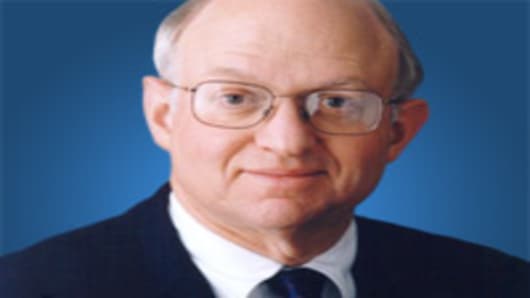Higher oil, lower household wealth and continued trouble in the housing market will keep first-quarter growth "south of 2%," economist Martin Feldstein told CNBCFriday.
Echoing the comments of other bearish analysts, a former advisor to President Reagan said, "I don’t see what is going to turn that around and bring it up" to the 4% growth predicted by others "anytime soon. We’re still in a very weak economy."
As a result of that weakness, the Federal Reserve is "Basically on hold," Feldstein said. "It’s not going to raise rates and it’s not going to repeat QE-2," referring to the central bank's bond-buying program.
"I don’t think there’ll be a QE-3 unless the economy totally collapses."
The downturn that began in December 2007 "was a collapse after a bubble based on mispricing of risk," said Feldstein. "So since it wasn’t caused by high interest rates the Fed couldn’t turn it around by lowering interest rates. So we’ve had to climb our way out of this very sharp decline in household wealth (and) in house building, and those things are not coming back."
Feldstein, a Harvard economics professor and member of President Obama's Economic Recovery Advisory Board, was disappointed by the president's speech Wednesday on the deficit.
"I thought the commission did a great job" in suggesting ways to cut the deficit," he said. "But the president's speech and his proposals were very disappointing. It may be he just had to say some of those things to make his left-wing base happier."
"But certainly he just rejected doing anything serious about Medicaid, anything serious about Medicare," Feldstein added. "The president said 'I'm fiscally responsible, I'm cutting the debt by $4 trillion.' But in fact there is very little of substance in that budget."


